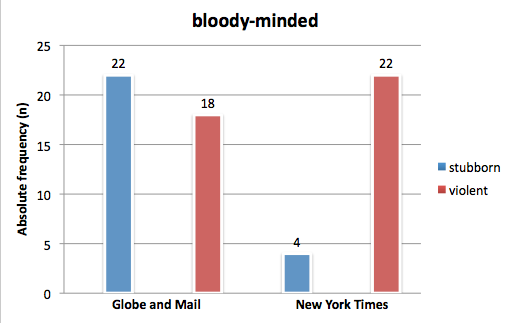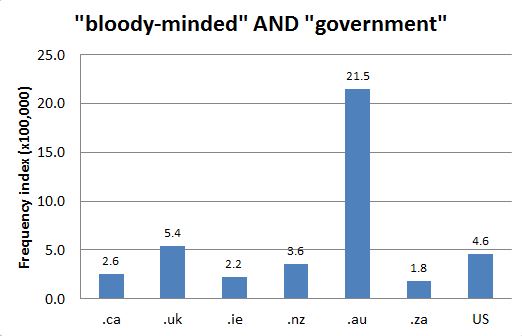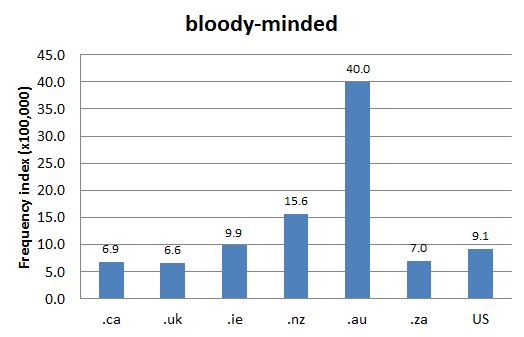DCHP-2
bloody-minded DCHP-2 (April 2016)
adj. — somewhat rare
unwilling to cooperate; stubborn.
Type: 2. Preservation — The OED-3 (s.v. "bloody-minded") lists two related meanings of this term. The earliest meaning, 'inclined to bloodshed or violence,' (s.v. "bloody-minded", (1)) has appeared to semantically shift into the non-violent 'perverse [or] contrary' (s.v. "bloody-minded", (2)). It is this second meaning, essentially 'stubbornly uncooperative', that is considered by COD-2 as characteristic to the Commonwealth countries of Canada, Britain and Australia. Chart 1 shows a semantic analysis of unambiguous tokens in the Canadian Globe and Mail and the US New York Times. Between 1930 and 1979 only a handful of unambiguous tokens appear (66), most showing the meaning 'stubborn' in the Canadian source. This gives us reason to label the meaning Canadian. As Charts 2 and 3 show, the term (in all meanings) is rare today with very low frequencies for Canada. The term is Canadian not only in the quantitative aspect, but also in its historical dimension as a preservation from British English. During the period from the mid-19th to the mid-20th century many Canadians considered all things British superior, including language; the preference for British English has been called Canadian Dainty (see Chambers 2004). This preference tended to move Canadian English away from American usage (see the quotations, which are not always unambiguous).
The OED-3 labels bloody-minded as primarily British, connecting the term to one of the various meanings of "bloody," which is defined as "bad, unpleasant, objectionable" and labelled as "outdated" (OED-3, s.v. "bloody" (8b)).
See also COD-2, s.v. "bloody-minded" (1), which is marked "informal" and "esp. Cdn, Brit. & Austral.".References:
Images:

Chart 1: Semantic analysis of bloody-minded from 1930-1979 in Canada and the US. Data: Proquest, 27 Mar. 2016 (Analyst: Baillie Ford)
Chart 2: Internet Domain Search, 31 Mar. 2014
Chart 3: Internet Domain Search, 31 Mar. 2014

